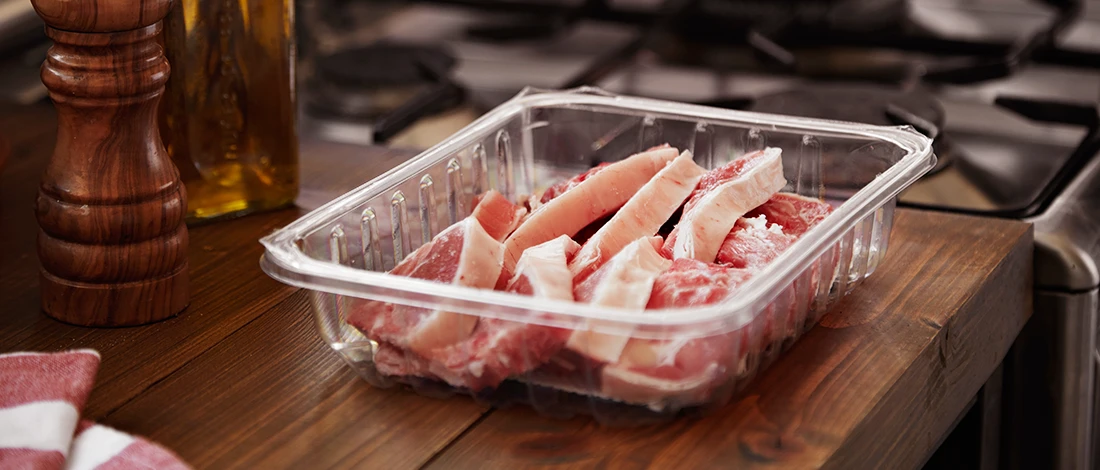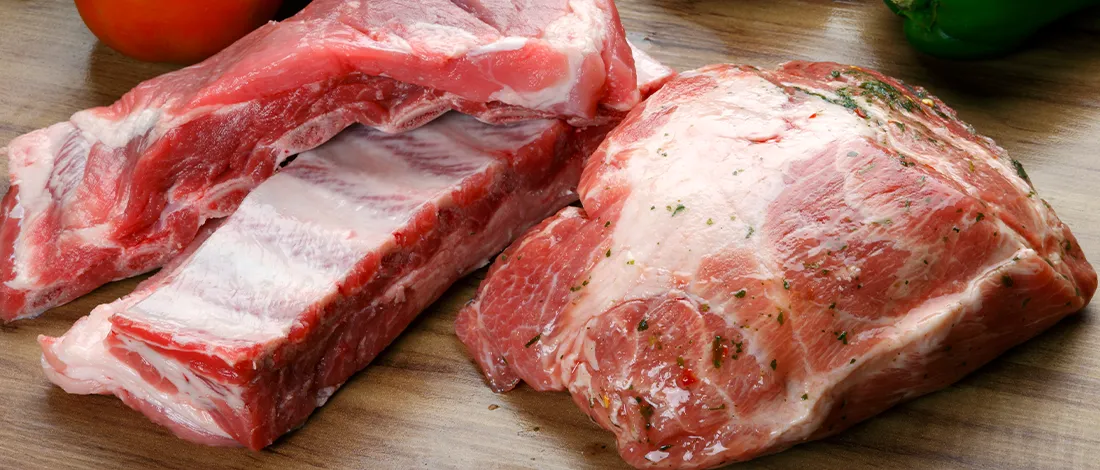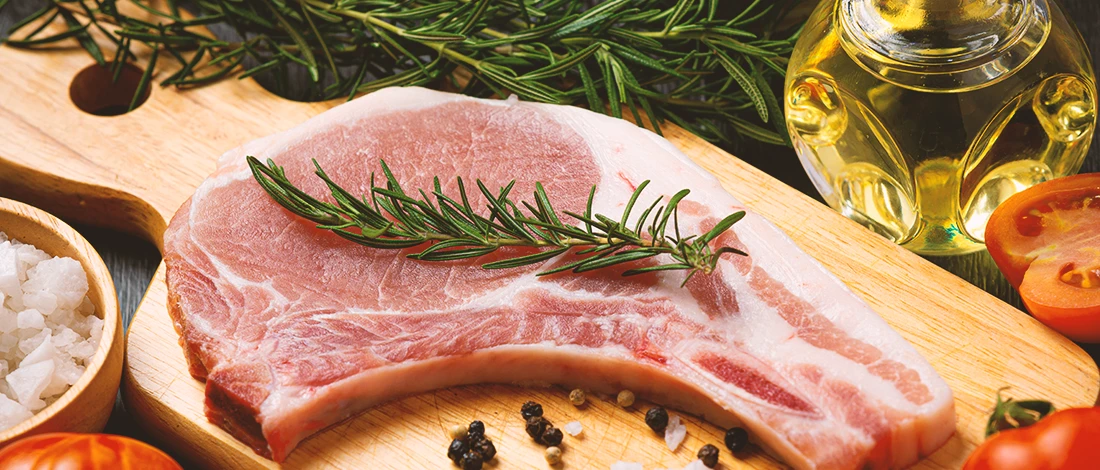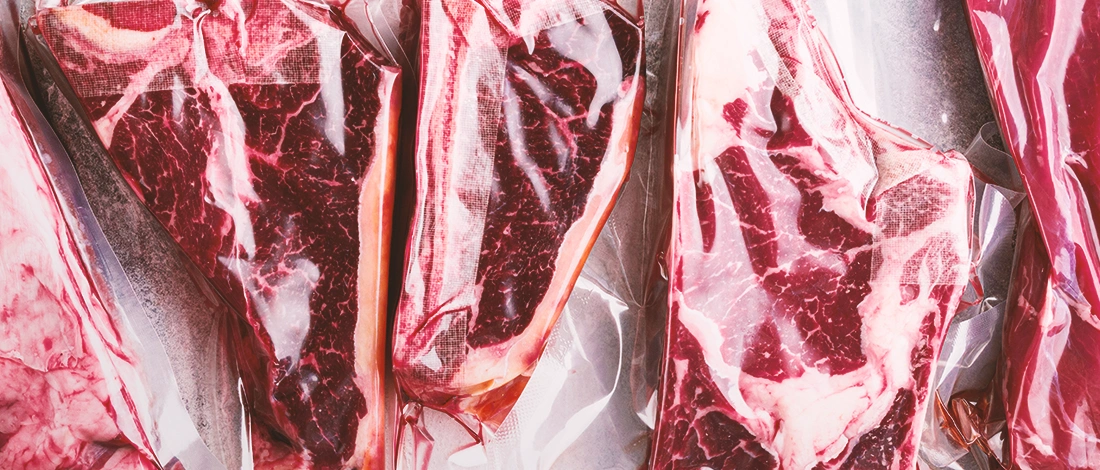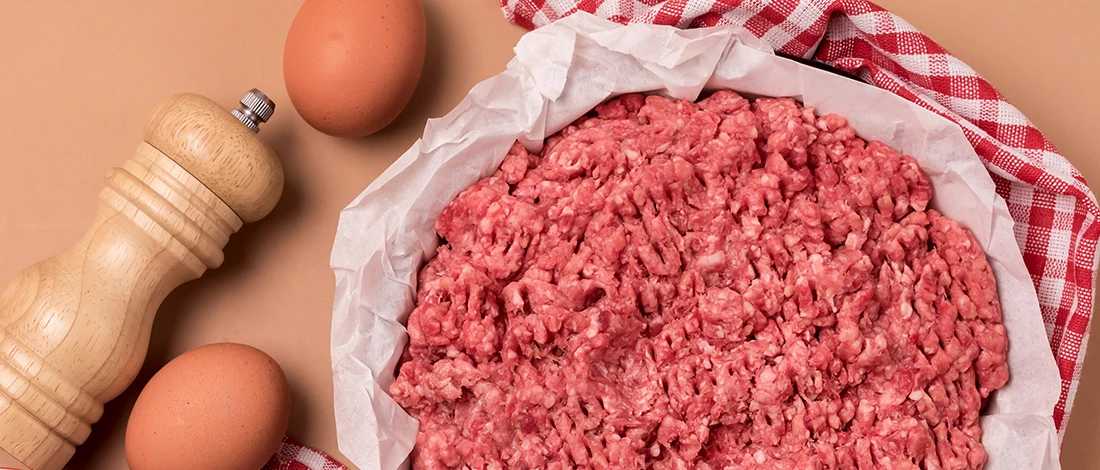As someone who occasionally experiences toe and joint problems, I wanted to see whether my carnivore lifestyle could potentially exacerbate the symptoms.
Although I love trying different meat dishes every other day, I decided to take it slow and monitor my symptoms every time I eat pork to determine if this cut is worsening the problem.
I have researched this topic thoroughly and consulted my physician to understand gout and its connection to pork.
Quick Summary
- Pork is neither good nor bad for gout. However, pork is a moderate source of purines, which can stimulate uric acid production and potentially exacerbate gout.
- Despite its purine content, pork is a good source of protein and other nutrients, and can be part of a low-purine diet for gout when consumed in moderation.
- Choosing leaner cuts of pork, avoiding processed pork products, and cooking methods that do not add additional purines can help manage gout symptoms.
Does Pork Worsen Gout?
Whether pork worsens gout depends on several factors, including the specific cut, cooking method, and portion and frequency it's eaten.
Unlike other red meats like beef, bison, and venison, pork is safe to eat if you have gout. Pork actually has a lower purine content than some other types of meat, such as shellfish, oily fish, turkey, and organ meats.
For instance, lean meat, like pork, is only moderately high in purines. This classification means the food has between 100 and 400 mg of uric acid per 100g [1].
Bacon, ham, sausage, and chops are all popular pork products. In fact, Americans eat 67 pounds of pork every year [2].
When you eat ham, you may generate more of the mineral uric acid than with antioxidant-rich foods, but it is not as bad as with a purine-rich diet in excessive or frequent amounts.
However, consuming excess or frequent amounts of pork can increase uric acid levels, leading to chronic gout attack and related symptoms.
Therefore, eat pork in moderation if you have gout or are at risk of developing it.
Nutritional Content of Poke
Of course, there is more to pork than just its purine content [3].
Pork can be a good source of the following:
- Iron: This mineral is vital for carrying oxygen in the blood.
- B vitamins: These vitamins are used in energy metabolism, enzyme function, and keeping the nervous system healthy.
- Zinc: Zinc affects wound healing, immune function, energy production, and fertility.
- Potassium: This mineral is essential for maintaining fluid and electrolyte balance in the body.
- Lean protein: Pork is a high-protein food, which is crucial for muscle growth and repair.
- Magnesium: A mineral that is involved in multiple reactions throughout the body, including energy production and protein synthesis.
- Phosphorous: Phosphorous is involved in the structure of bones and teeth, energy production, and cell signaling.
That said, pork is not 100% healthy for you. Many cuts of pork are high in saturated fats, leading to weight gain and other health problems like heart disease.
In excess, pork prepared improperly may lead to chronic gout symptoms or gout flare-ups.
Thus, to prevent related diseases, you should keep your daily meat intake within the recommended daily values to reduce gout symptoms.
You Might Also Like: Are Pork Rinds Good for You?
SELECTING THE BEST CUTS FOR A GOUT DIET
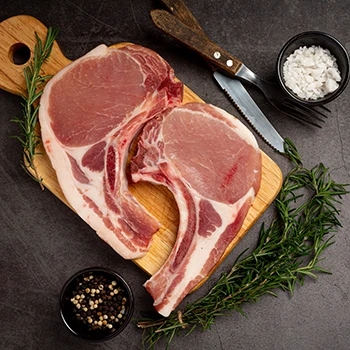
When choosing pork, it is essential to select leaner cuts of meat. The leanest pork chops have less than 10% fat. Pork tenderloin and pork loin are also good choices and are low in saturated fat.
You should also avoid processed pork products such as bacon and sausage, which are high in salt, fat, and preservatives.
For pork to be a good dietary choice for someone with an increased risk of gout, you want to cook it in a way that does not add additional purines or create excess uric acid.
This means avoiding pork that has been deep-fried, battered, or placed in a sugared marinade.
While cooking pork meat properly reduces the risk of infectious disease that pork meat carries, it does not lower the risk of gout. People suffering from gout should consider rinsing their food before cooking as that can help to remove any residual purines.
Finally, purines can be released into the meat's juices when cooked. So, it is good to avoid eating pork from single-pot recipes. Instead, cook the pork separately and add it to your final dish.
If you want a way to get high-quality, lean pork delivered to your door, ButcherBox is an excellent option.
ButcherBox sources their pork from heritage breed pigs raised without antibiotics or hormones.
Related Article: Is Pork Healthy?
Facts About GOUT?
Gout is a form of arthritis that causes pain, swelling, and stiffness in the joints. It most commonly affects the big toe but can also occur in the knee, ankle, foot, elbow, hand, and wrist.
This disease is caused by an increase of uric acid in the blood [4]. Uric acid production occurs when the body breaks down organic compounds known as purines [5].
Usually, your kidneys will filter out uric acid, and you will pass it out in the urine. However, sometimes the kidneys can't keep up, and uric acid builds up in the blood.
When this happens, it can form needle-like crystals that deposit in the toe or other joints, causing inflammation and pain.
There are several factors that can worsen inflammation and increase the risk of developing gout attacks.
These include:
- Obesity
- Gender, Men have higher risk than women
- Older age
- Alcohol use
- Family history of gout attacks
- Sugar and purine-rich foods
- Chronic diseases like high blood pressure, diabetes, and kidney disease
- Medications like aspirin, ACE inhibitors, beta-blockers, and diuretics
The most common symptom of gout is sudden severe joint pain. The joint may feel hot and tender to the touch. Other symptoms include redness, swelling in the affected joint, and joint stiffness.
GOUT TREATMENT
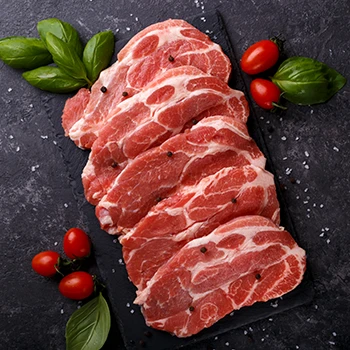
There are two main ways to treat frequent attacks of gout: medication and lifestyle changes.
Medications can help to reduce the inflammation and pain associated with a gout attack. They also can help reduce the frequency of gout flares.
"An attack of gout can occur suddenly, often waking you up in the middle of the night with the sensation that your big toe is on fire."
- The Mayo Clinic
Lifestyle changes can also help to lower uric acid levels and prevent future attacks.
These changes include eating a healthy diet, keeping a healthy weight, and limiting alcohol consumption.
Diet is a critical part of both the treatment and prevention of gout. A diet rich in purines can increase uric acid levels in the blood and lead to a gout attack.
High-fat creamy sauces contributing to saturated fat to your diet often are tied to a gout flare.
This happens far more than with whole grains, lean cuts of chicken breast, and more fiber-rich foods like plant-based protein sources.
FAQs
What Meat Can I Eat To Avoid Gout Symptoms?
You can eat low-purine meat to avoid gout symptoms. You generally want to eat meat like chicken and lean pork, avoiding the highest purine foods like organ meats, red meat, shellfish, and venison.
Why Does Pork Cause Gout?
Pork does not cause gout, but the purines in pork can raise uric acid levels in the blood and trigger gout attacks.
How Much Pork Can I Eat with Gout?
There is no definitive answer to how much pork you can eat with gout, as everyone's tolerance for purines may differ. A single 4-6 ounce serving of pork per day is probably safe for most gout sufferers.
Is Pork Worse than Beef for Controlling Gout?
Pork is better than beef for controlling gout. Pork is often considered a type of white meat since it's a source of lean protein like poultry but has moderate amounts of purine, unlike beef, which has high levels that can worsen gout.
References:
- https://elevatehealthaz.com/wp-content/Purine%20Table.pdf
- https://farmdocdaily.illinois.edu/2021/05/an-overview-of-meat-consumption-in-the-united-states.html
- https://pork.org/nutrition/pork-nutrition/
- https://www.cdc.gov/arthritis/basics/gout.html
- https://www.mayoclinic.org/healthy-lifestyle/nutrition-and-healthy-eating/in-depth/gout-diet/art-20048524


